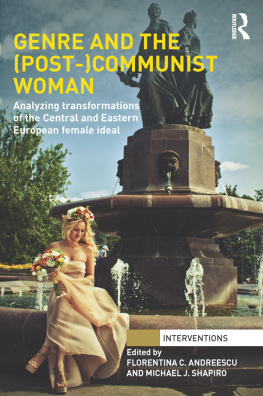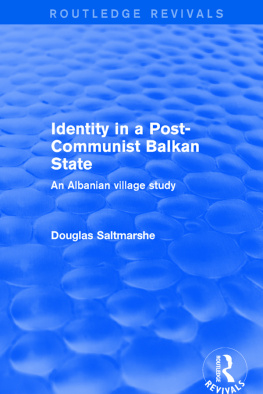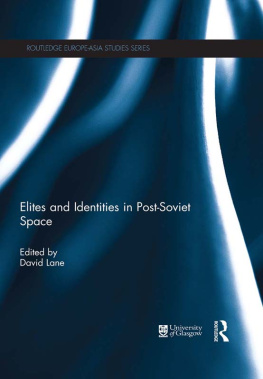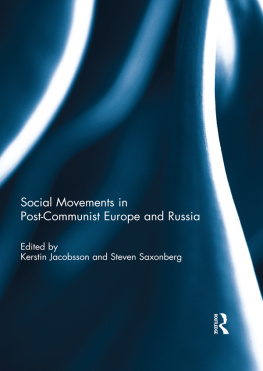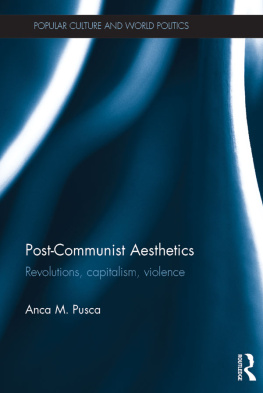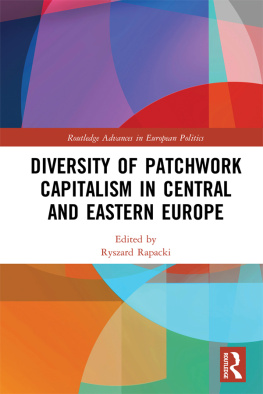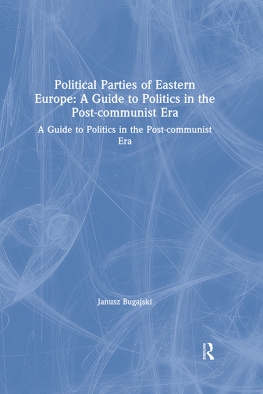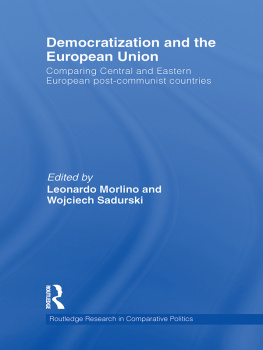Genre and the (Post-)Communist Woman
This work is a critical intervention into the archive of female identity; it reflects on the ways in which the Central and Eastern European female ideal was constructed, represented, and embodied in communist societies and on its transformation resulting from the political, economic, and social changes specific to the post-communist social and political transitions.
During the communist period, the female ideal was constituted as a heroic mother and worker, both a revolutionary and a state bureaucrat, which were regarded as key elements in the processes of industrial development and production. She was portrayed as physically strong and with rugged rather than with feminized attributes. After the post-communist regime collapsed, the female ideals traits changed and instead took on the feminine attributes that are familiar in the Wests consumer-oriented societies. Each chapter in the volume explores different aspects of these changes and links those changes to national security, nationalism, and relations with Western societies, while focusing on a variety of genres of expression such as films, music, plays, literature, press reports, television talk shows, and ethnographic research. The topics explored in this volume open a space for discussion and reflection about how radical social change intimately affected the lives and identities of women, and their positions in society, resulting in various policy initiatives involving womens social and political roles.
The book will be of interest to students and scholars of gender studies, comparative politics, Eastern European studies, and cultural studies.
Florentina C. Andreescu is a lecturer in International Studies at the University of North Carolina, Wilmington.
Michael J. Shapiro is a professor of Political Science at the University of HawaiiMnoa.
Interventions
Edited by:
Jenny Edkins, Aberystwyth University and Nick Vaughan-Williams, University of Warwick
As Michel Foucault has famously stated, knowledge is not made for understanding; it is made for cutting. In this spirit the EdkinsVaughan-Williams Interventions series solicits cutting edge, critical works that challenge mainstream understandings in international relations. It is the best place to contribute post disciplinary works that think rather than merely recognize and affirm the world recycled in IRs traditional geopolitical imaginary.
Michael J. Shapiro, University of Hawaii at Mnoa, USA
The series aims to advance understanding of the key areas in which scholars working within broad critical post-structural and post-colonial traditions have chosen to make their interventions, and to present innovative analyses of important topics.
Titles in the series engage with critical thinkers in philosophy, sociology, politics, and other disciplines and provide situated historical, empirical, and textual studies in international politics.
Critical Theorists and International Relations
Edited by Jenny Edkins and Nick Vaughan-Williams
Ethics as Foreign Policy
Britain, the EU and the other
Dan Bulley
Universality, Ethics and International Relations
A grammatical reading
Vronique Pin-Fat
The Time of the City
Politics, philosophy, and genre
Michael J. Shapiro
Governing Sustainable Development
Partnership, protest and power at the world summit
Carl Death
Insuring Security
Biopolitics, security and risk
Luis Lobo-Guerrero
Foucault and International Relations
New critical engagements
Edited by Nicholas J. Kiersey and Doug Stokes
International Relations and Non-Western Thought
Imperialism, colonialism and investigations of global modernity
Edited by Robbie Shilliam
Autobiographical International Relations
I, IR
Edited by Naeem Inayatullah
War and Rape
Law, memory and justice
Nicola Henry
Madness in International Relations
Psychology, security and the global governance of mental health
Alison Howell
Spatiality, Sovereignty and Carl Schmitt
Geographies of the nomos
Edited by Stephen Legg
Politics of Urbanism
Seeing like a city
Warren Magnusson
Beyond Biopolitics
Theory, violence and horror in world politics
Franois Debrix and Alexander D. Barder
The Politics of Speed
Capitalism, the state and war in an accelerating world
Simon Glezos
Politics and the Art of Commemoration
Memorials to struggle in Latin America and Spain
Katherine Hite
Indian Foreign Policy
The politics of postcolonial identity
Priya Chacko
Politics of the Event
Time, movement, becoming
Tom Lundborg
Theorising Post-Conflict Reconciliation
Agonism, restitution and repair
Edited by Alexander Keller Hirsch
Europes Encounter with Islam
The secular and the postsecular
Luca Mavelli
Re-Thinking International Relations Theory via Deconstruction
Badredine Arfi
The New Violent Cartography
Geo-analysis after the aesthetic turn
Edited by Sam Okoth Opondo and Michael J. Shapiro
Insuring War
Sovereignty, security and risk
Luis Lobo-Guerrero
International Relations, Meaning and Mimesis
Necati Polat
The Postcolonial Subject
Claiming politics/governing others in late modernity
Vivienne Jabri
Foucault and the Politics of Hearing
Lauri Siisiinen
Volunteer Tourism in the Global South
Giving back in neoliberal times
Wanda Vrasti
Cosmopolitan Government in Europe
Citizens and entrepreneurs in postnational politics
Owen Parker
Studies in the Trans-Disciplinary Method
After the aesthetic turn
Michael J. Shapiro
Alternative Accountabilities in Global Politics
The scars of violence
Brent J. Steele
Celebrity Humanitarianism
The ideology of global charity
Ilan Kapoor
Deconstructing International Politics
Michael Dillon
The Politics of Exile
Elizabeth Dauphinee
Democratic Futures
Revisioning democracy promotion
Milja Kurki
Postcolonial Theory
A critical introduction
Edited by Sanjay Seth
More than Just War
Narratives of the just war and military life
Charles A. Jones
Deleuze and Fascism
Security: war: aesthetics
Edited by Brad Evans and Julian Reid
Feminist International Relations
Exquisite corpse
Marysia Zalewski
The Persistence of Nationalism
From imagined communities to urban encounters
Angharad Closs Stephens
Interpretive Approaches to Global Climate Governance
Reconstructing the greenhouse
Edited by Chris Methmann, Delf Rothe and Benjamin Stephan
Postcolonial Encounters in International Relations
The politics of transgression in the Maghred
Alina Sajed
Post-Tsunami Reconstruction in Indonesia
Negotiating normativity through gender mainstreaming initiatives in Aceh
Marjaana Jauhola
Leo Strauss and the Invasion of Iraq

